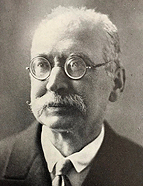

Geography, at the time a subject linked to H istory, was the subject of similar publications. In 1902 he published Principios scientificos de geografia [ Scientific principles of geography] . This was followed by Chronicas geographicas: estudos de actualidade [G eographic chronicles: topical studies ] (1905), a work that had the peculiarity of revealing his partisan affinities, placing him close to the Partido Regenerador [ Regeneratist Party ] and, in the political context it appeared, supportive of the dissent led by João Franco, to whom it was dedicated. Nomenclatura geográphica: subsídios para a restauração da toponymia em língua portuguêsa [ Geographical nomenclature: subsidies for the restoration of toponymy in the Portuguese language ] (1908, with the 2 nd edition, amended and expanded, in 1928), strengthens the weight among his intellectual concerns of what he considered to be the defence of nationality, a recurring topic in his work. The geographical field was also present in Portugal e as Colónias Portuguesas [ Portugal and the Portuguese Colonies ] (1918), whose main worth la id in the bibliography it provided on the subject.
The end of the first decade of the 20 th century seems to have been a turning point for Fortunato de Almeida. Even though his political activities had been secondary to his Catholic militancy in the previous period , after the triumph of the Republic, there is no evidence of any such activity. On the contrary, he continued to be active, expressing himself, among other things, in his collaboration with Lusitania – Revista Catholica Mensal [ Lusitania - Monthly Catholic Magazine ] , directed by Francisco de Sousa Veloso and edited by Manuel Gonçalves Cerejeira. In it , he published, as an “ unpublished passage from the Hi story of the Church in Portugal” , A Reforma Protestante e as irreverências de Gil Vicente [ The Protestant Reformation and the irreverence of Gil Vicente] ( Year I, no. 4, 1914). He sought t o refute, on the one hand, the “historical phantasmagorias” of Teó filo Braga, who saw in the “court poet” a “precursor of Erasmus” (p. 207); and, on the other hand, the “ apparatus of erudition and equal firmness of historical criteria ” (p. 210) that, in his opinion, were revealed in Carolina Michaëlis Vasconcelos ’ Notas Vicentinas (1912). It discussed the inquisitorial institution - a subject on which he proceeded with caution, even in later works – and the role of the Catholic Church and its agents in this regard. Emphasising the uniqueness of the Iberian courts in the landscape of Christendom, the author points out chronological inconsistencies in relation to the aspects that he perceived in the playwright ’ s work as part of the climate that led to the religious reforms of the 16 th century and, in this context, tries to refute the hypothesis that the censorious and inquisitorial environment was at the origin of the bard ’ s withdrawal from the court.
This work is financed by national funds through FCT - Foundation for Science and Technology, I.P, in the scope of the projects UIDB/04311/2020 and UIDP/04311/2020.
